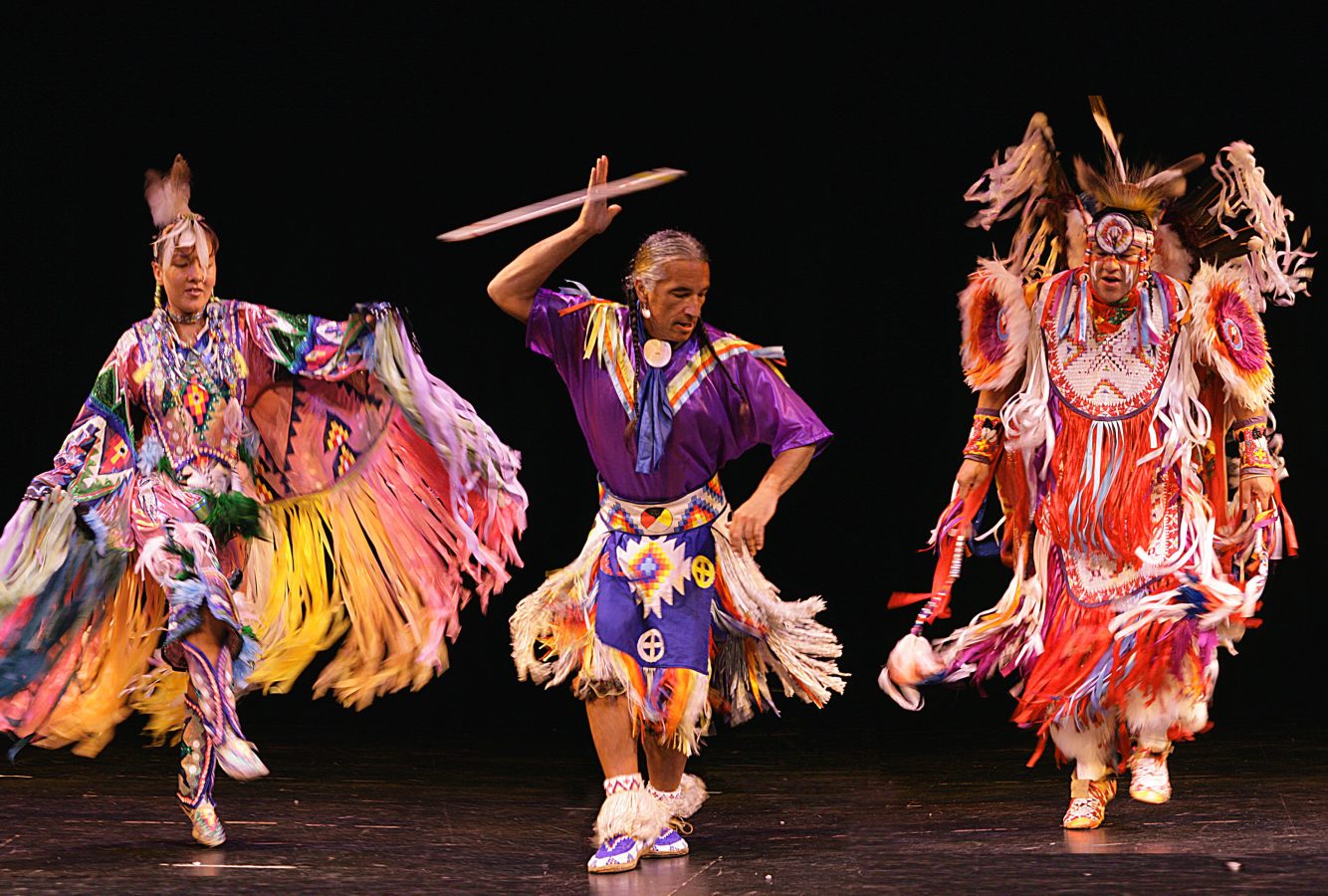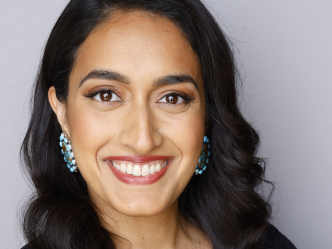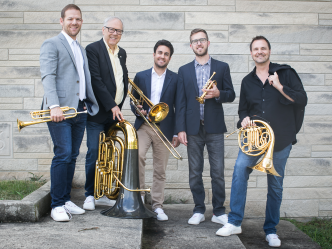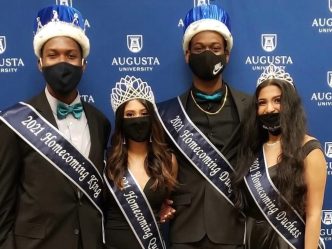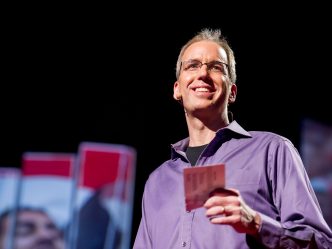While it might be tempting to view the performances of the Kevin Locke Native Dance Ensemble, which will be performing at the Maxwell Theatre on Saturday, Jan. 24, as part of the 47th annual Lyceum Series, as cultural history brought to life on the stage, the troupe’s namesake would ask you to do otherwise.
“Ostensibly, people might view it as a cultural presentation, but if you take it out of the realm of looking at things through a cultural lens, then what it is is the presentation of traditional arts, or folk arts,” he said.
According to Locke, folk arts portray universal themes, like the longing for beauty, symmetry, harmony, rhythm, and balance – all things showcased by the ensemble.
“To me, what it’s really all about is affirming universal, unifying aspects of humankind,” he said. “It accentuates the nobility of the human spirit.”
Locke, recognized as one of the leading representatives of Native American Hoop Dancing as well as an expert in the indigenous Northern Plains flute, considers himself a bridge figure. Though his Lakota name, Tokaheya Inajin, means “the first to arise,” he makes it clear that he is part of an unbroken line of Native American artists.
“My mentor for the flute was born in the 1870s,” he said. “He passed away in the mid-1970s and was something like 100 years of age,” Locke said. “He was my mentor, so I got it from the source.”
Though Locke’s flute music may come from the source – he uses a traditional Native American flute rather than the more melodic version used on most recordings since the 1980s – not all the dancing goes back to early days, though it does remain authentic.
Wayne Silas, one of the ensemble members who was also voted Best Male Artist at the 2013 Native American Music Awards, dances a more contemporary style that developed out of the wild west shows, when audiences craved more spirited entertainment.
“When they were doing a lot of reenactments, the younger dancers and the people who directed the shows wanted something more energetic and more entertaining for the audience, so this style of dance was starting to kick up a lot higher with a lot faster style of song and more and more of an eye-catching style of dance.”
Like Locke, he considers his dancing less of an act of preservation and more of an evolving form of artistic expression that touches everyday life.
“Evolution is a perfect word for it,” he said. “It evolved into who we are today. We hold strongly to a lot of our teachings, a lot of the cultural and social aspects of our lives.”
Kelly Thomas, who is the Director of the Maxwell Theatre, said the ensemble is exactly the type of event he looks for when developing the Lyceum Series.
“We try to find something you’re not going to see in the community without us,” he said. “And by reaching to this event, in some ways we’re exposing our students and our community to things that are really closer to home. The native cultures are all around us, but we often don’t open our eyes to see what’s right here, and this is a way for us to do that.”
Though many shows at the Maxwell Theatre are general admission, Lyceum events like this one are reserved: $15 for the general public, $10 for GRU alumni and military, and $5 for GRU faculty and staff. GRU students are free with a valid JagCard.
“The sooner you get your ticket, the better your seat will be,” he said.
Tickets can be purchased at the box office or online.
Locke and Silas will also participate in a series of workshops that are free and open to the public.
At noon on Friday, Jan. 23, Lock will hold a Native American Flute workshop at the Fine Arts Center, C-1.
On Saturday, Jan. 24, at 10 a.m., Locke will be on the stage of the Maxwell Theatre for a Hoop Dancing workshop, and at 11 a.m., Silas will follow with a drumming workshop. Both are appropriate for all ages, including kids and families.
 Augusta University
Augusta University
